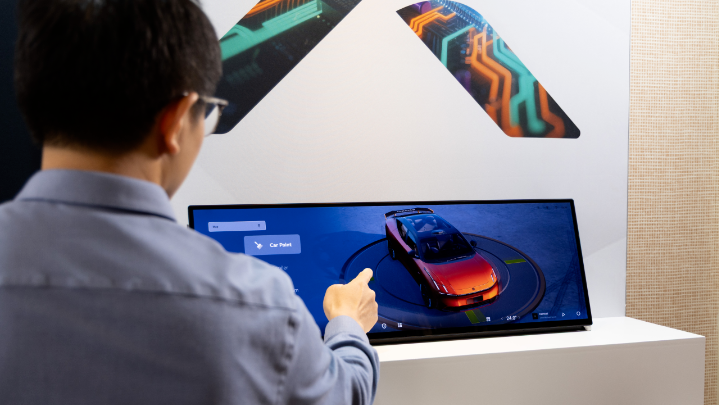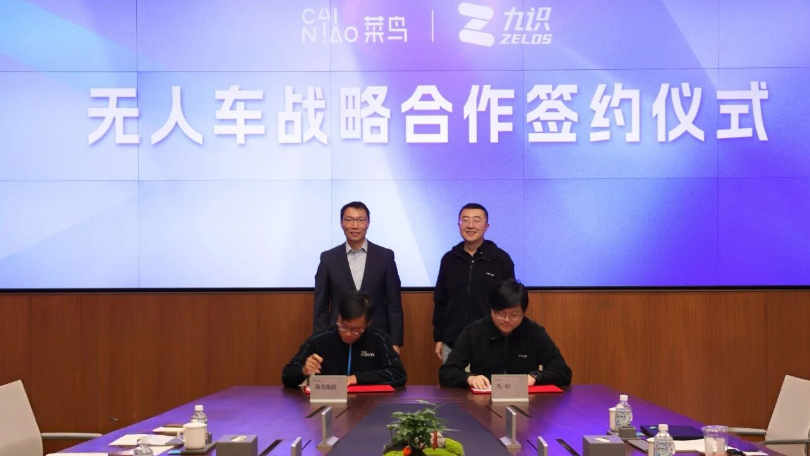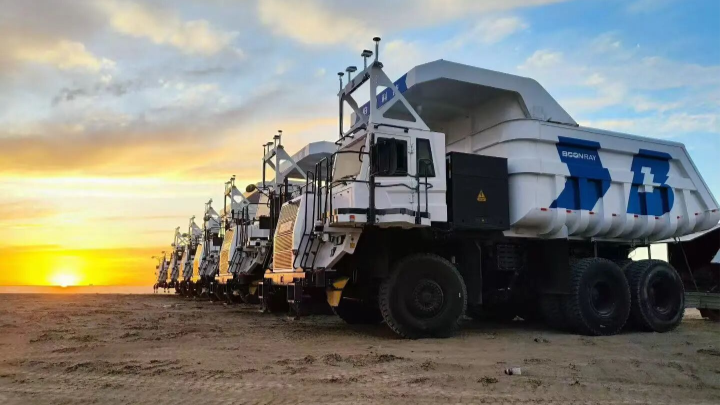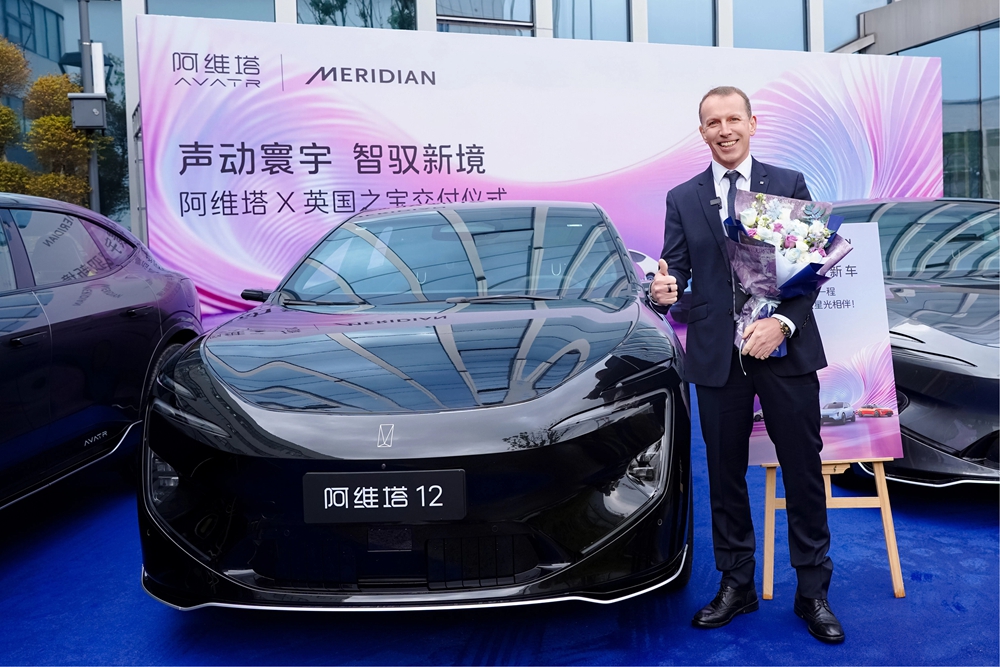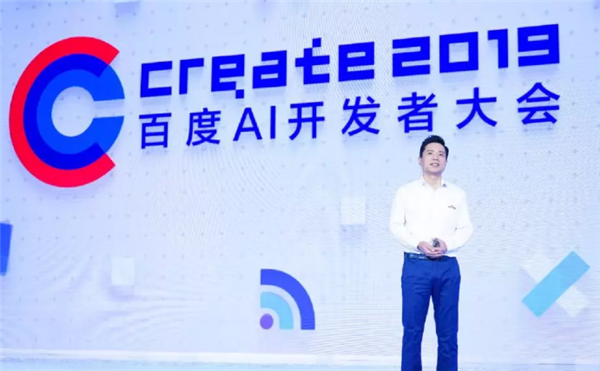
Shanghai (Gasgoo)- At the Baidu Create 2019 AI Developer Conference kicking off on July 3, Li Zhenyu, Baidu's vice president and General Manager of Baidu's Intelligent Driving Group, reported the latest milestone advancements for its Apollo platform.
Apollo “new species”
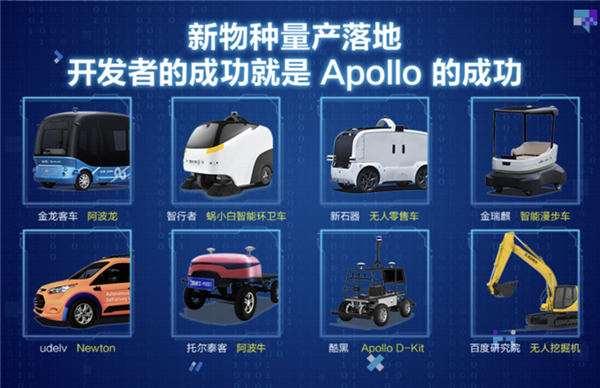
Baidu officially launched its Apollo autonomous driving platform in 2017. To date, a total of 156 partners, covering a number of world-leading OEMs, Tier 1 suppliers and mobility service providers, have joined Apollo's circle of friends.
Li said Apollo is an open, integrated and safe platform that can help partners of automobile and autonomous driving industries quickly build their own self-driving system combining vehicles and hardware.
Joining hands with multiple partners, Apollo has created a variety of “new species”, such as unmanned mobile vendor, the intelligent scenic spot-used “wandering” vehicle, the smart sweeper and the self-driving excavator.
He also revealed that the autonomous minibus “Apolong” developed by Baidu Apollo in collaboration with King Long has so far served around 40,000 passengers and has been operated in 25 cities in China. Besides, the self-driving mobile convenience stores jointly developed with Neolix have already offered services for around 160,000 times.
Two-million-km testing range
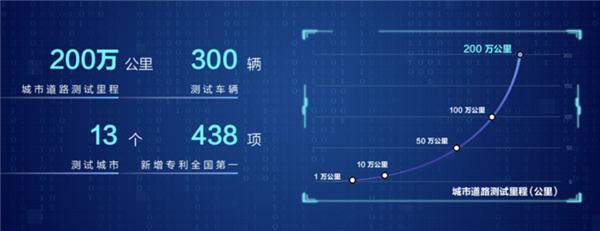
According to Li Zhenyu, Baidu's Level 4 autonomous cars have by far travelled over 2 million kilometers for urban road tests. A total of 300 vehicles have been put into test across 13 cities.
Earlier this week, Baidu was granted five T4 license plates for self-driving road test by regulators in Beijing, making it the first-and-only company to receive the highest-level permit issued in China.
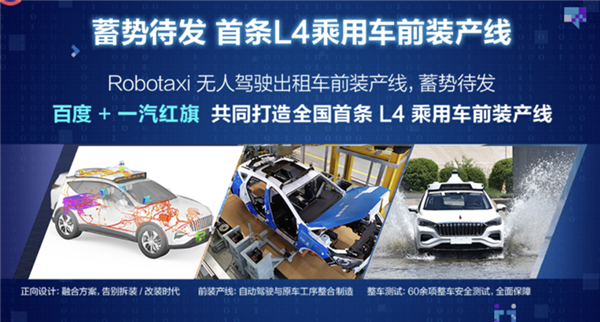
Moreover, China's first factory-installed assembly line for Level 4 autonomous cars jointly built by Baidu and FAW Group's Hongqi brand has already begun production, Li added. Its first batch of mass-produced Level 4 self-driving passenger vehicles will be deployed in Changsha, capital of Hunan Province, in the first place.
“Apollo Go” robotaxi program
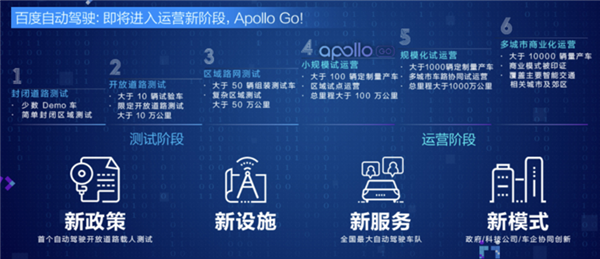
Also set to be debuted in Changsha is "Apollo Go", Baidu's Apollo robotaxi project, which is slated to be launched as part of the Hunan capital's smart city upgrade. Under the program, a 5G network and an intelligent upgrade of roadway infrastructure will be deployed to lay the groundwork for what will be the country's largest Level 4 self-driving taxi fleet.
At the conference, Li Zhenyu displayed the “Apollo Go” mini-program interface that enables users to hail a ride in one of Baidu's autonomous cars.
It is noteworthy that Baidu has been given 45 testing plates several days ago by the local government of Changsha, allowing its autonomous vehicles to pick up passengers.
Apollo 5.0
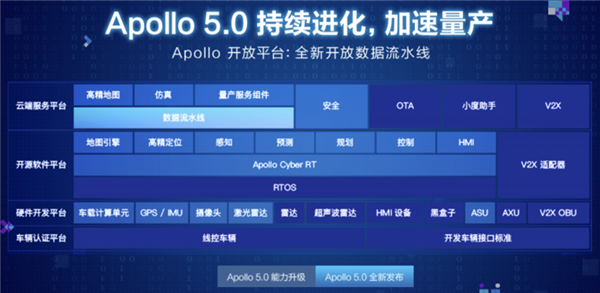
Baidu also announced the Apollo 5.0 that embraces both the Apollo Open Platform and the Apollo Enterprise.
The Open Platform has upgraded 17 core capabilities and made its data pipeline accessible to developers, making users complete dynamic calibration for a vehicle within just 30 minutes via the cloud at a rate of 100 vehicles per week.
The Apollo Enterprise released two all-new mass-produced solutions for self-driving taxis and intelligent signal control. Meanwhile, it has primarily upgraded three core capabilities in unmanned minibus, valet parking and the DuerOS.
DuerOS 5.0
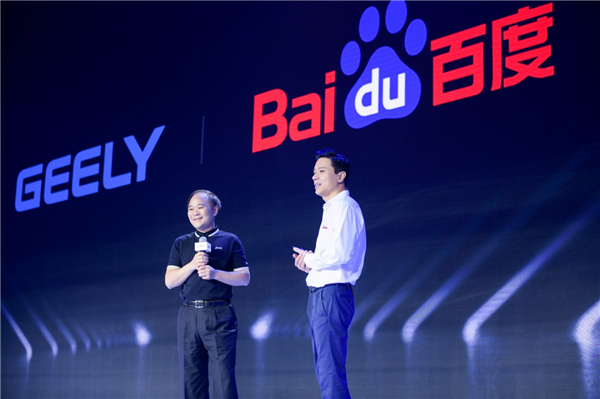
In the meantime, the Internet giant launched DuerOS 5.0, the latest iteration of its conversational AI system.
The conversation AI assistant has been widely used in production models of many automakers like Chery, Great Wall Motor and Ford. After forging partnership with Geely on the same day, the updated AI solution will be employed by another mainstream Chinese automaker.
Smart traffic solution
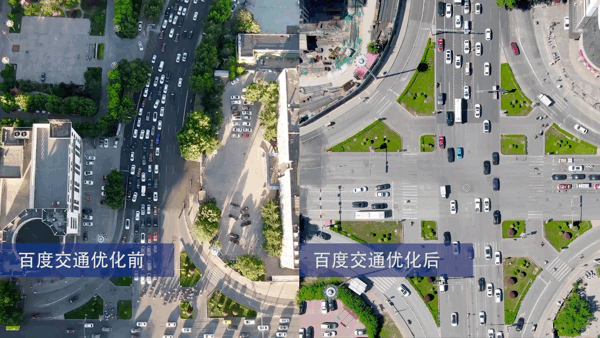
Baidu's Apollo smart signal control system has been deployed in Baoding, Hebei province, helping to reduce traffic delays by 20-30% there.
Li Zhenyu said Apollo's intelligent traffic solution is able to control multiple scenarios in real time. In the future, the company will keep investing in intelligent transportation by further improving system control efficiency across all facets of mobility.
Safety First for Automated Driving
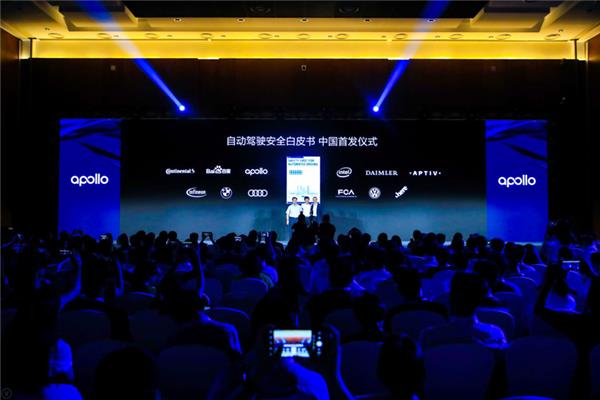
Safety is still the most important theme that was repeatedly highlighted.
Baidu launched an initiative with ten of its partners, including Volkswagen, BMW, Audi, Daimler, FCA, Aptiv and Continental AG to publish “Safety First for Automated Driving” (or SaFAD), a non-binding organized framework for the development, testing and validation of safe automated passenger vehicles. It is also the world's first paper about the autonomous driving safety for the whole industrial chain (Photo source: Baidu).






